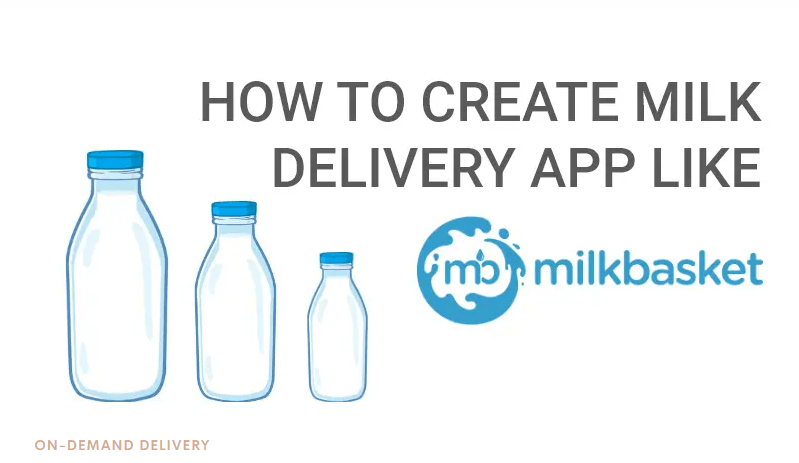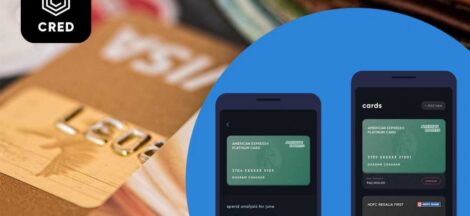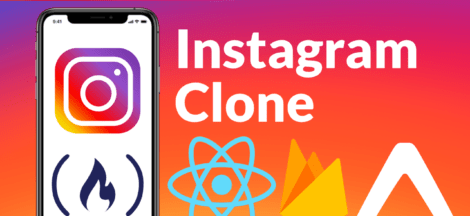The days have gone by, and you and I had to leave our residences to find the best products. In fact, in some people, it’s so intuitive to go shopping each morning or go home from work. Shopping is definitely relaxing, but it gets incredibly lengthy when it comes to juggling with your work. However, our lives are now focused on these applications because they have significantly enriched our lives. All thanks to the development of the milk supply or mobile delivery apps.
Now, what’s a milk delivery application, you might ask? Generally, the term itself indicates its functions and characteristics. You will use the application to find out the best choices for buying Milk with the on-demand delivery system.
Top 5 Milk delivery app development companies
- JPLoft Solutions
- G Tech
- WebPlanex InfoTech
- Kody Technolab
- Techugo
See also:
- Build Farm-to-table Delivery App
- How to Build a Multi-Vendor Marketplace
- On-Demand Food Delivery App Development
It is gaining popularity fast because it promises to supply fresh milk in conjunction with the desired quantity. Guaranteed service and the increasing need for milk applications are rising. Thus, for many milk supply stores, the need for a milk supply solution has become a priority.
Comfort, simplicity, and pace are among the top preferences for customers who want their needs satisfied. The on-demand distribution applications fulfill all three.
Everybody looks forward to quickly fulfilling daily morning needs, such as milk, eggs, butter, etc.,. An on-demand milk delivery app may be the biggest blessing for those who are usually late or pressed for time. You can register with these applications, set your position and your regular specifications, and receive secure delivery each day at the selected time. Isn’t it just comfortable? Every day, there is no more trouble visiting the local vendor to buy fresh milk and milk products.
Do you know the best thing about your own mobile milk supply app? The intended target audience needs no care because everyone who uses the online platform is a potential new buyer.
But if you are persuaded of this profitable business model and want to build your own on-demand dairy supply app, continue to learn. Here we address every aspect of the production of mobile app milk supply, its characteristics and the related costs.

Why People Are Looking For A Milk Delivery Application
People are slaves to their nurturing habits. Since everything is on our disposal, this clothing, food, clothes and milk supply app are more dependent on us. MilkBasket, Daily Ninja, etc are some popular milk delivery applications. A list of reasons can explain this evolving situation:
- A Simple And Time Efficient Purchasing Process
This is the key reason why online milk supply stores are in such high demand these days. Shoppers can only buy milk at the last minute or pre-order when they want and need it. Choosing, clicking, paying, and receiving is just as convenient.
- Home Delivery Option Is Also Available
No extra credit to guess that this contributed to a large demand for milk supply applications. Only a few years ago, people had to tackle adverse weather and other milk-buying problems. Milk is one such product we humans need every morning and is one of those basic foods. What better choice than to take it at your door without spoiling sleep in the morning?
- Delivery Is Also Free In Most Of The Cases
The milk delivery app offers free delivery after a certain amount of cart, like any other food or commodity delivery app. This results in two-way profit: firstly, the customer does not have to pay an additional penny for the delivery; secondly, the retailer sells a huge quantity and makes a decent profit.
- Reliable Brands To Choose From
A strong brand name always seems to be successful. Nobody wants to sacrifice quality, particularly when it comes to edible products. Buyers would like to display their favorite brands on the list regarding their well-being. As a result, once they have done their research and development, they will also learn to trust other brands.
READY TO LAUNCH YOUR APP?
With Customized On-Demand Solutions by OyeLabs
Benefits of on-demand dairy delivery apps
There are a number of benefits to getting a milk delivery application developed. Moreover, these benefits are not limited to the dairy companies but also to the consumers as well.
Let’s dive into them.
Benefits For The Dairy Companies
- Ease Of Operations
Milk supply applications help to streamline the activities of dairy companies. They record everything from the overall number of customers and distribution workers to maintaining large KPIs with these applications.
- Branding Of The Services
Online applications help to create a recognizable brand for your simple company. Because of their purity and dependability, people have far more confidence in brands than in non-branded services. Dairy companies may use online milk ordering applications to popularise and develop themselves as a milk distributor brand.
- Opportunities To Scale-up
A technology boom is an on-demand app. You will help you get new possibilities from your dairy business. For example, the on-demand app will allow you to do this if you want to target a niche market or a particular public for your specialized services. You, for instance, have your own milk company and the on-demand smartphone app makes it easier for consumers to order their items only online without calling or waiting. In addition, it will help you handle the provision of ordered materials at the client’s door.
In certain ways, creating on-demand apps will help you grow your business through enhanced services.
- Investor Attraction
Think of famous, unique concepts that originated with the idea of on-demand services. Uber and Airbnb. For Angel Investors, they have been preferred companies. Investors who missed the bus might reasonably well invest in a promising startup. The on-demand application development services will help you build an effective and user-friendly app that will attract many investors during this time.
In other words, a good corporate strategy, engagement and on-demand delivery app attract investors. As a result, you can quickly collect crowdfunds to expand your global footprint.
- Offer A Competitive Edge
On-demand applications can allow you to customize services and attract new customers. In several cases, the app promotes a client base for your dairy industry and helps you to extend business across borders. Your rivals, other local dairy companies who still have to carry their apps on request, can stay behind you and you can easily make it happen.
The on-demand economy is also based on young people and thousands of years. For example, the main audience for on-demand services and products remain millennials. Young people continue to be the key tools to meet on-demand orders. In other words, with the aid of the on-demand application service, a massive population of young people can take your company to the next level.
- Meet The User Expectations
One reason your milk business requires on-demand apps is that they can easily satisfy user requirements. On-demand application development services simplify business processes and increase consumer comfort. For example, an on-demand delivery app will fulfil the delivery requirements on the same day, supporting loyal customers. On-demand applications can also be scaled to suit potential needs.
Also, you can always employ such app developers to adjust and adapt the application according to current market trends and expectations.
Benefits For The Users
- Ease To Users
In the everyday world, visitors visit their supermarket every day to buy milk. Even in emergencies such as extreme blazing heat, medical problems, and other circumstances, people generally need to find ways to get to the market because milk is necessary. Customers can spare the effort to get fresh milk right at their doorstep through dairy delivery applications.
- Flexibility To Choose Delivery Timings
One of the big benefits of milk supply applications is that customers are allowed to select the milk quantity and delivery times as necessary. For people who work or who need no milk every day, this is an unimaginable alternative.
- Flexibility Of Making Payments
Milk delivery applications allow all clients to use built-in payment methods to pay online. Different methods of payment, including e-wallets, safe and trouble-free transactions. Also, once a client registers on the app, they can change their app balance to a certain amount that covers their dairy costs, whether weekly or monthly. Customers do not have to pay daily for milk as the total is deducted automatically from this programme wallet balance.

How To Build A Milk Delivery App Like Milkbasket
Step 1 – Set Your Goal
First and foremost, you need to get away from any form of technology or distraction and grab hold of your pen and paper. Now, use that to decide what exactly you want to accomplish with your application – in this case, it could be to build the best possible application that users would love to use for ordering milk. Thus, start with pen & paper and not with coding and design.
Moreover, ask yourself the following question to gain some more clarity on your idea:
- What exactly do you want your app to do?
- How will you appeal to users and gain traction on your application?
- How do you change the lives of people?
- How would you market your app?
Step 2 – Gain Some Clarity On Your Idea
You must be certain about the following subjects in order to make your MilkBasket-like application successful:
- Your Revenue Model
Like never before, the market, as well as the technology, is booming. Thus, you must choose the best approach possible to ensure that the application you are planning to build generates a decent amount of revenue for this asset. Different revenue-generating approaches exist from mobile devices, including payment devices, autonomous free and in-store applications, advertisements, and subscription and download payments. These methods may be used for revenue generation. However, your approach must adhere to the standard. It is extremely necessary for the developer to attract customers and spend money in the various aspects of the application.
- Your Target Users
Well, the application should be built considering how the target users operate or are well-versed with the technology. Another option to enhance the application’s performance is to provide yourself with a specific vision of the target audience. That way, you’ll be able to make all the important decisions keeping them in mind.
Step 3 – Wireframing
In the technical world, a wireframe is the application’s elegant storyboard, which not only gives you a fancy approach of developing the application along with a solid path for you to follow. You take the idea of the drawing and definition and make the idea a little better and more practical. his wireframe generally becomes the foundation for your application, so it is a critical move. You can use hundreds of websites to help bring your sketches into digital life with features such as clicks and icons. The trick is to find one that is easy to use and matches your future goals related to the application.
Step 4 – Defining The Backbone Of Your Application – The Backend
After you’ve completed your wireframing, it is time to use the storyboard to start testing the application’s features.
Your servers, APIs, and data diagrams should be specified using your wireframe. There are some great app developer guides that can provide you with the tools to do so easily. You should possibly use a hosting service and data processing on your application if you are not aware of all the technical jargon.
Regardless of the way your app is designed, it’s important to create a simple chart as a guide to anyone who works on a project. Revising the wireframe could be a few changes if you have any technical issues.
Step 5 – Get Your MVP Made.
In reality, your concept is being taken and converted into an application with a few basic functions in this part of the process. An MVP or a prototype makes it simpler for potential buyers to sell the application now and not only imagine or read the product summary. It successfully draws investors, collaborates with producers, and obtains licensees.
You may also share the concept app with beta testers to get an idea of what needs to be turned into a successful mobile application. To protect your product, make sure you take action against unauthorized use and access to data, particularly while working on a project.
Step 6 – Release Your Application
Launching an application requires release movement for testing and living environments to be planned, scheduled and managed. The main objective of Deployment Management is to protect the integrity of the living environment and to release the right components.
Step 7 – Keep Your Metrics In Check
In the last decade, mobile app users have increased significantly. Therefore, it is extremely important to obtain accurate measurements. With the number of consumers using mobile apps increasing, the collection of accurate metrics is becoming ever more important. Unfortunately, web analytics use many tools for estimating applications. Thus, it becomes really important to keep an eye on the metrics in the current world.
Step 8 – Keep Updating Your Application Regularly
Upon seizing the measurements, enhancements and special functionality can be applied to the application. The long-term usability of a mobile app without advanced functionality would be lost. Improved usability with creative functionality and app installation. Ensure you do not let your app stagnate to keep updating to follow the latest guidelines from different platforms.
These are some of the steps to be taken while creating the app. You should make an application to ensure long-term success with these measures. However, the precise steps necessary for the app’s overall success are almost impossible to lay down.
Step 9 – Get Your Application Right
While these is not the steps to “make” an app, it is definitely important to make your app work. If your software is not well promoted once it is released, it is likely to get lost in the many applications available in many shops. Make sure the demand for your app is nice. This is a bonus step towards making a good mobile app, but you can use it to your own advantage. So,
How Much Does It Cost To Build An App Like Milkbasket?
Let’s complete this article by addressing the main query after exploring nearly every aspect of the mobile app’s milk delivery creator. But it is not as simple as it would appear to answer this question. The total cost of creating milk supply apps has many influences. The key factors are the region in which the app is designed, the number of characteristics, and the number of platforms.
The area is one of the most significant factors because the developer’s hourly costs vary from country to country because of the country‘s various economic conditions. But the production standard remains equal. Just to say, in Europe, it costs $120 to $180 per hour, in Asian countries like India it costs $40 to $80 an hour. Hiring a developer in America costs $150 to $250 per hour. Therefore, creating the app in India appears to be an intelligent option.
The number of features and platforms are also important factors that enormously affect development costs.
However, this does not mean that the projected costs of creating the milk supply app can only be measured. Two items will cost about USD 10,000 to $15,000 in light of the growth of the MVP version in India. The price is the MVP edition of the application, which contains more advanced features such as advanced CRMs and CMS, which can boost total costs if available on many platforms.
E-commerce as a whole is booming at the moment. Milkbasket is a dairy and daily needs product delivery app, and it provides a unique solution in its way of operations (the midnight order limit and early morning delivery), which is its appeal. You can assess your market to know if there’s scope for your unique solution.
First thing you should do is a lot of market research. Check out the competition. Take reliable advice, and formulate a basic business plan for your design. If you think it can stand on its own two legs, you can start on the development process.
The overall cost depends on factors like the app’s complexity, developer charges, location, etc. Typically, an app like Milkbasket can cost you anywhere from $5-50,000 (or more) to make.
After your application is out in the market, you need to pay for maintenance. Typically, a small to medium-sized app can require anywhere from $5 to $11k per month, whereas extensive projects can take as much as $25k per month. It depends on the app. You can discuss this further with your developers.
At the moment, many apps like MilkBasket operate globally, such as Grofers, DoorDash, BigBasket, NinjaCart, InstaCart, Supr, etc. All of these work at various levels, competing and evolving according to their areas of operation.




 How Much Does It Cost To Develop A Newspaper Mobile App?
How Much Does It Cost To Develop A Newspaper Mobile App?